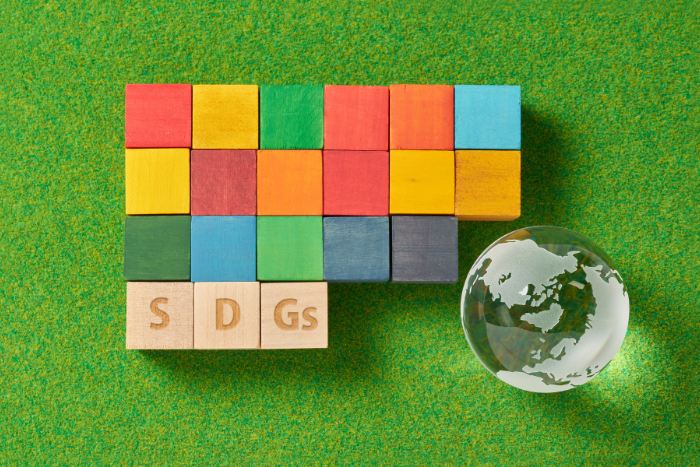Halfway to the 2030 deadline for the Sustainable Development Goals (SDGs), a new report found that extreme events and altering weather patterns because of climate change are compromising the progress on almost all SDGs
Only 15% of the Sustainable Development Goals (SDGs) are on track, says the United in Science report, a new multi-agency report coordinated by the World Meteorological Organization (WMO). The report made a systematic examination of the impact of climate change and extreme weather on the goals. It also illustrated how weather, climate and water-related sciences can advance aims such as food and water security, clean energy, better health, sustainable oceans and resilient cities.
According to the report, the total CO2 emissions from fossil fuels increased 1% globally in 2022 compared to 2021. This was primarily driven by growth in oil use as the aviation sector rebounded. There is also a 98 % chance that one of the next five years will be the warmest on record, the report added.
The report found that progress on almost all SDGs is being hampered by climate change. Take, for example, SDG 2 Zero Hunger. The report estimated that nearly 670 million people may face hunger in 2030, in part due to more extreme weather events, disrupting pillars of food security (access, availability, utilisation and stability).
Climate change and extreme events like heatwaves are projected to significantly increase ill health and premature deaths. Rapid urbanisation also puts more people at risk. For example, air pollution is a major urban threat to health and is associated with nearly seven million premature deaths annually, compromising SDG 3 Good Health and Well-being.
The report said that climate change induced changes in precipitation patterns, evaporation rates and water storage pose significant challenges for managing water resources sustainably, putting a strain on SDG 6 Clean Water and Sanitation. The report further added that extreme weather events and climate change threaten the achievement of SDG 7 Affordable and Clean Energy for All by changing energy supply capability and demand, making the clean energy transition more unpredictable and potentially more expensive.
While SDG 11 Sustainable Cities and Communities is being threatened by rising sea levels and storm surges, heat waves, extreme precipitation and flooding, drought and water scarcity, and air pollution, climate related impacts caused by human activity are threatening our oceans, affecting marine ecosystems and compromising SGD 14 Life Below Water.
To get on track to meet the Paris Agreement goals of limiting warming to well below 2°C and preferably 1.5 °C, global greenhouse gas emissions must be reduced by 30% and 45%, respectively, by 2030, with CO2 emissions getting close to net-zero by 2050. This will require large-scale, rapid and systemic transformations.
The report said that global investments are needed in weather-, climate- and water-related sciences and services along agrifood value chains. Weather predictions help boost food production and move closer to zero hunger.
The report recommended scaling up investments in climate-resilient and low-carbon health systems, and progressing towards universal health coverage to achieve good health and well-being for all. Integrating epidemiology and climate information can help understand and anticipate those diseases sensitive to climate.
Use of scientific and technological advances, such as drones, artificial intelligence and space technology, can provide opportunities for data-driven integrated water management practices and policies. Also, the report added, big data and artificial intelligence offer potential for enhanced energy system operation.
High-resolution observations, forecasting models and multi-hazard early warning systems are the fundamental basis for integrated urban services. And partnerships across diverse stakeholders, including the weather, climate and water scientific communities, are essential to achieve the SDGs.
The recommendations showed that the need for science and solutions is more urgent than ever. “The science continues to show that we are not doing enough to lower emissions and meet the goals of the Paris Agreement. As the world prepares for the first global stocktake at COP28, we must increase our ambition and action, and we must all do the real work to transform our economies through a just transition to a sustainable future for people and planet,” said Inger Andersen, Executive Director of the UN Environment Programme.
About The Author
You may also like
Monsoon likely to be ‘above normal’ at 106% of LPA in India; earliest-ever onset of monsoon breaks Mumbai’s rain record in May
Southwest monsoon enters Andaman and Nicobar region, a week in advance
Temperatures soar to 42-45°C, heatwave alerts for many parts of India
Weather office alert on severe heat waves and heavy rainfall in parts of India
Climate goals overestimate forests’ carbon absorption capacity: Study


